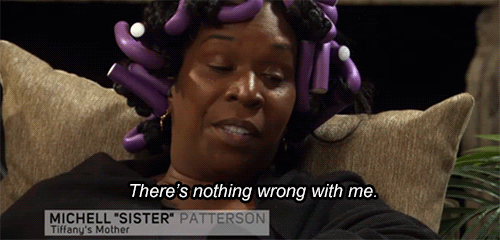'You Can Sleep When You're Dead', But Shouldn't You Also Sleep Now?
Sleep is so important, guys.
Everyone has heard the basic "You can sleep when you're dead," quote that is to motivate you to keep pushing through and to do everything that life has to offer. However, being told this is actually detrimental to both physical and mental health.
I came across an article titled 'You Can Sleep When You're Dead' Is Actually Deadly Advice" after discussing this phenomenon in a sociology class of mine. This class is definitely out of my area of expertise seeing as I am a mechanical engineering major. Nevertheless, I try to stay engaged in the class and I actually find it pretty interesting. Recently in class, we were discussing the quote "Rest is not the reward for hard work – it is the prerequisite," which led us into the discussion of "You can sleep when you're dead." There are three main reasons why this advice going around a lot is harmful to one's psychological and physiological well-being.
1. Lack of sleep puts the immune system at a disadvantage
Sleep loss can make it more difficult for your body to fight off illnesses because white blood cells are depleted. Neuroscientist Matthew Walker says that just one night of only four to five hours of sleep can decrease white blood cell count by approximately 70%.
2. Just one hour of lost sleep can kill
According to studies conducted in the spring when clocks are pushed forward an hour, car accident rates spike along with heart attacks spike 25% because sleep deprivation increases stress on the heart.
3. Sleep debt is carcinogenic
Sleep deprivation causes the body to be more prone to contracting colon, breast, and prostate cancers.
Do people who tell us these things realize how bad it actually is to say this? Growing up, I have always heard how adults always know best, to follow the advice of my teachers, etc. But when teachers have the audacity to tell me that I need to "Eat, sleep, and breathe," the subject of their class (this has actually happened to me before) or adults tell me to just push through because I can "Sleep when I'm dead," am I really expected to listen?
So many students in high schools and universities across the world deprive themselves of sleep in order to get their homework done and to study for their tests. However, the issue doesn't just lie in the people saying these things. When it comes to teachers and professors in academia saying these things, the issue becomes much bigger because they are the ones whose job it is to educate and mentor their students. This is an issue within the education system as a whole.
Why do some teachers and professors ignore that fact that we as students are human beings? That we need sleep and rest in order to properly function? And that we are taking more than just their one class?
In order for the education system to change, these issues need to be addressed. All educators need to be aware of the increased stress and pressure students today are facing in comparison to years past. All students need to be aware of their own health and understand their body's limits so that they do not push themselves too hard. As a student, it hurts to hear my educators tell me that I just need to "Suck it up and deal with it," "Get straight A's or you'll be a failure in life," "Eat, sleep, and breathe...," etc. All of these statements put students into a bad mindset, increase their already high-stress levels, and take away their love of learning.
It is rude and downright disrespectful (almost to the point where it can be seen as mental harassment) for educators to say such things to students, especially when school stress is now becoming an issue in some middle schools, not just high school and college. I understand that school is difficult and that there is no way to just make it easy enough for everyone to get straight A's. However, school should not be seen as a toxic environment, teachers shouldn't be placing so much stress on kids by telling them to busy themselves with everything because they will have plenty of time to "Sleep when they're dead." Instead, teachers need to be offering resources to students in order to help them get through the hustle and bustle of school and motivate their students in ways that will actually help them, not hurt them.










































Contrary To What You May Have Heard, There Are Multiple Forms Of Happiness, And You Will Find Yours
No matter what obstacles you face, you have the power to enjoy your life and live each day purposefully and joyfully.
There is only one thing that all people want, and that thing is happiness. Happiness — the great aspiration of mankind — should be easy to claim by now. We've desired it from the beginning of time and haven't stopped since, so why haven't we found the "secret formula," or the golden plan for how we can all cultivate it in our lives? The answer to that is because we have yet to abandon false and antiquated beliefs of what happiness is and how to get it. Here are six of the most popular myths the masses perpetuate about happiness.
1. "You have to strive for happiness."
When we speak about happiness, we make it out to be some unattainable, mystical prize that we can only receive after days, weeks, and months of actively seeking it out. When we speak about happiness, we make it seem like something we have to work for instead of something that we already have. Without a doubt, happiness is something that we can cultivate in our lives anywhere and at any time. We don't have to wait or go searching for it. Participating in a hobby, spending time with loved ones, or simply practicing gratitude can be simple ways to find happiness in your everyday life.
2. "Happiness is the same thing as inner peace."
Segwaying from the first point, this is probably the most commonly believed myth about happiness. The main reason people perceive happiness as this great, unattainable thing is because they're misunderstanding what it is. Happiness is defined as simply "the state of being happy." You can be happy at any point in time, regardless of the circumstances you're up against. And like most other emotions, happiness comes and goes, just as it should. People mess up when they think that happiness is a permanent state of being that will make them feel fulfilled, confident in themselves, and at peace with every circumstance in their life. That is not happiness. That is inner peace.
Inner peace is defined as "a deliberate state of psychological or spiritual calm despite the potential presence of stressors." Unlike happiness, inner peace is something that takes a lifetime to achieve, and it can't be attained through any outside sources. But to make it more valuable, it doesn't fade away so easily, either. Going to see a comedy can make someone happy, but it can't help them feel at one with themselves, and that distinction is so important to note. People often sink into depression and feel unhappy because they're lacking inner peace, not happiness.
3. "You can find happiness in other people."
Romantic and platonic love absolutely exist, and being around people you love can definitely make you feel happy. But other people are never responsible for your happiness, and they can't provide it for you. The problem comes in when people rely on others to make them feel content or to bring light into their lives.
Imagine a person who only feels happy when they're with their significant other. What happens to them if the relationship ends? They become a person who loathes being single and uses relationships as a way to validate themselves. They think, "If I just find another partner, then I'll be happy." Happiness isn't defined by people you may or may not have around you. If you find yourself waiting on a specific person or situation to make you happy, then you're looking for the wrong thing.
4. "There is only one type of happiness" or "You can only be happy if your life is perfect."
While there is only one definition of happiness, there are many ways to express it in our own lives. We see images and videos online and in the media, that trick us into thinking that we have to be smiling from ear to ear, enjoying an idealistic and picturesque life, while we shout from the rooftops about how happy we are. While that may be one way to express our happiness, it doesn't mean that's the only way.
Just because you're not doing something adventurous every day or because you don't smile a lot doesn't mean you aren't happy. There is no archetype for a happy person. Happiness is personal for everyone, and we don't have to prove how happy we are or feel like we have to appear a certain way to convey that.
Consequently, what makes one person happy may not make another person happy, so we can't fall prey to societal conditioning that tells us we have to have X, Y, and Z before we become what people believe to be happy. We think that we can only experience true happiness if we attain everything we perceive as desirable: we'll be happy once we reach a certain follower count, or if we finally get that job we've always wanted, or if we lose twenty pounds, etc.
But happiness can't be found in material or superficial things. Sure, if your YouTube account blows up and you get a million followers, you will feel more confident and successful, but the end result will be that you have more money and more opportunities, not more happiness. A person that hasn't learned how to cultivate happiness in their life won't magically figure it out after they earn more money or lose some weight.
5. "Everyone else is happier than you."
In our digital age, it is easy to be bombarded with false images and messages. From the outside looking in, everyone else's life may seem perfect and full of happiness and success compared to yours but that is absolutely not true! People just want you to think that. Social media is an easy way to fool people into thinking your life is great and stress-free. I mean, who wants to share all of their secrets and failures with the world?
However, we must always remember that humans are creatures obsessed with their own self-image. We all like to look happy. The shining difference is that some actually are while others are putting up a facade. Don't compare your life and happiness to anyone else's. It's not a competition. Focus on cultivating happiness in your own life and the rest will fall into place.
6. "You will never find happiness."
No one wants to admit it, but a large population of people live their lives believing they'll never be happy. Some of it stems from the fact that they are chasing inner peace instead, while another part comes from the idea that their current circumstances aren't good enough. No matter what obstacles you face, you have the power to enjoy your life and live each day purposefully and joyfully. The only thing you must do is believe and take action. Happiness isn't hard to find. We only believe that it is. Stop waiting for a fairytale to come true and live your life as it is. Despite what you may think, there are so many things that you can be happy about.
With these 6 happiness myths debunked, cultivating happiness in our own lives should be a lot easier now. When you're feeling unhappy, analyze what is happening in your life and pinpoint whether your unhappiness is stemming from valid issues, or if you're perpetuating flawed beliefs.